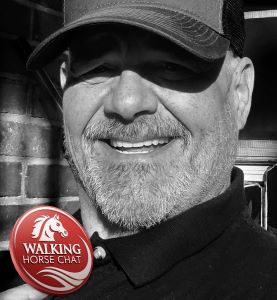EDITORIAL:A New Dawn for the Tennessee Walking Horse Industry
A New Dawn for the Tennessee Walking Horse Industry
By Tommy Williams, Publisher of WalkingHorseChat.com
LISTEN TO AUDIO FILE OF THIS ARTICLE
The Tennessee Walking Horse industry isn’t just about horses—it’s about people. It’s about the families who’ve raised these horses for generations, the trainers who’ve spent countless hours perfecting their craft, and the fans who fill the stands at every show, cheering for their favorites. It’s about tradition, pride, and a shared love for one of the most graceful breeds in the world. But over the past few years, that tradition has been under threat. That’s why today’s ruling by United States District Judge Matthew J. Kacsmaryk feels like a turning point—a moment to celebrate and look forward to a brighter future.
a brighter future.
In his decision, Judge Kacsmaryk ruled in favor of the Tennessee Walking Horse National Celebration, Tom Gould, and Kimberly Lewis on nearly all counts. He struck down key parts of the USDA’s 2024 amendments to the Horse Protection Act, including the blanket ban on action devices, pads, and substances. He also found that the replacement of the Scar Rule didn’t give the industry a fair chance to defend itself. While the court upheld the provision about the Designated Qualified Person (DQP) program, the overall ruling is a clear win for common sense and fairness.
This decision isn’t just about legal jargon or regulatory details—it’s about real people and their livelihoods. For years, breeders, trainers, and exhibitors have been navigating a maze of regulations that made it harder to do what they love. Many felt like they were being unfairly targeted, and some even wondered if the industry could survive. But today’s ruling changes that. It’s a reminder that when we stand together and fight for what’s right, we can make a difference.
I believe 2025 will be a year of incredible growth for the Tennessee Walking Horse industry. With these unnecessary barriers lifted, we’ll see more people participating in horse shows, more families visiting training facilities, and more businesses thriving. The Tennessee Walking Horse National Celebration, already a highlight of the year, will likely see record attendance, bringing a much-needed boost to local economies.
But this ruling isn’t just about economics—it’s about hope. It’s about the young girl who dreams of showing her first Tennessee Walking Horse, the breeder who’s worked tirelessly to preserve the breed’s unique characteristics, and the fan who travels miles to watch these horses perform. It’s about ensuring that the Tennessee Walking Horse remains a symbol of Southern heritage for generations to come.
As the publisher of WalkingHorseChat.com, I’ve had the privilege of hearing from so many of you—your stories, your struggles, and your triumphs. This ruling is a testament to your resilience and dedication. It’s a reminder that the Tennessee Walking Horse industry is more than just a business; it’s a community.
Looking ahead to 2025, I’m filled with optimism. This legal victory opens the door to a new era of growth, innovation, and celebration. Let’s embrace this opportunity to showcase the beauty, grace, and versatility of the Tennessee Walking Horse to the world.
Here’s to a thriving 2025 and beyond—for the horses, for the people who love them, and for the traditions that bring us all together.
Tommy Williams
Publisher, WalkingHorseChat.com
 refusing to comply with her firing by the Trump administration, according to
refusing to comply with her firing by the Trump administration, according to